The website’s author has always wanted to do something while being some place near the community where he could explore more freedom of content. In this area, which will start by being a monthly thing, he’ll definitely have the opportunity to show a mostly personal vision about (not only) the game.
Who Framed FIFA 15 Ultimate Team ?
This is one of those themes almost everyone has got an opinion on. The problem is that people tend to make their opinion extremist, defending their point of view just as they would defend their favourite club. Either they absolutely hate the changes, or they absolutely love them. Things aren’t always black and white. It’s important to leave emotions aside and analyse the facts as impartially as possible. This is what I’ll be trying to do, although obviously every analysis has its personal component.
Most players define which side they’re on according to the benefits EA’s strategy has brought them. In general, people who already had the best players are against price ranges. They watched their cards lose too much value, their biggest source of profit, trading, turned almost inexistent and they feel like the tons of coins they have now are worth nothing since the best cards can no longer be found on the market. The ones that agree with the changes are mostly those who don’t buy coins, don’t use Autobuyers and they feel like it’s become easier for them to get the best players, which they were never going to be able to afford before. People and their egocentric analysis forget that it’s not about our coin balance in the end, but seeing whether or not the game’s problems have been solved. Has it not become sustainable?
Before I go on, just to help people who aren’t familiar with the game keep up, here’s an overview of what happened. Since the beginning of FUT 15, the most expensive player cards have been the target of a never before seen kind of speculation, which made them inaccessible for most players. EA Sports didn’t hesitate to blame it on the coin sellers and autobuyers. So they decided to fight them by implementing several changes in the game, including the Web App and Companion transfer market deactivation and then the definition of maximum and minimum prices for each card, followed by the omission of the seller’s club name on live auctions and bigger tournament prizes. Will all that have good results?
FIFA 15 Ultimate Team is certainly a superb game. Original, creative and extremely addictive. But it suffers from many problems that supposedly could be easily solved: faulty servers and tournament prizes, banned accounts for no apparent reason, cards stuck on the market or simply gone, punishments for disconnections that don’t make sense, incorrect in-game statistics etc… I could sit here all day and list problems but I think you got the idea. These are serious errors that affect our game experience and EA just don’t give them proper attention. Nevertheless, it’s not because of all these problems that I should stop analysing the changes introduced on the FUT 15 transfer market. These are two different things. After all, micro-transactions are what makes this a differentiated game mode. You have to respect more and marginalize less those who take advantage of them.
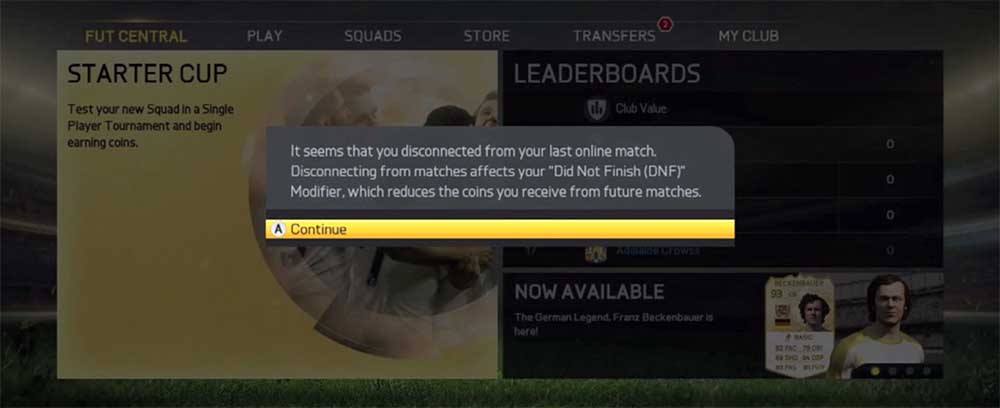
The sentiment of “It’s EA’s game, so they make the rules” is frequently echoed. While this holds true, it’s evident that EA prioritizes initiatives that drive FIFA Points sales over addressing fundamental game issues. They recognize their market dominance, boasting a vast and devoted fanbase, and prioritize maximizing profits. However, they may face surprises with FIFA 16.
While EA holds the authority to shape the game, altering rules midstream is a disservice to paying customers. Their obligation is to deliver a finished product, not transform FIFA 15 into an experimental ground for FIFA 16. Thousands of players invested considerable time earning coins legitimately, hoping to realize their dream teams. It’s unjust that their efforts were devalued overnight, despite their financial standing remaining unchanged.
The rapid escalation in coin seller and Autobuyer activity compelled EA to take action swiftly. However, the timing of their intervention was ill-conceived. Implementing measures mid-game disrupted the player experience. While combating illicit activities is necessary, the timing and execution were flawed. The measures taken were ineffective, prompting EA to resort to repeated deactivations of remote access apps like the Web App and Companion App.
EA’s aggressive stance against coin sellers has intensified, employing moral rhetoric and implementing measures like Price Ranges. Yet, these actions have unintended consequences, impacting both gameplay and EA’s reputation. Despite efforts, coin sellers persist, employing innovative tactics. EA faces a dilemma: eradicate these entities entirely or persist with policies that inadvertently bolster them. The community eagerly anticipates EA’s next move, a decision that will shape FIFA 16 and beyond.
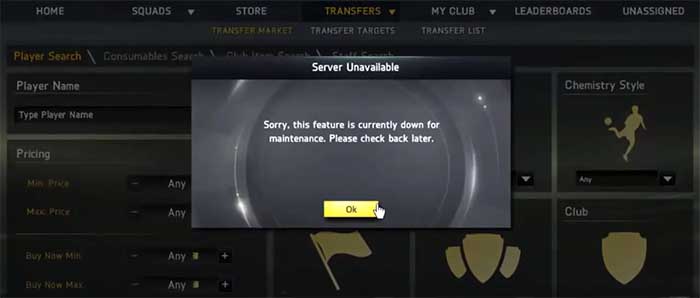
‘Who framed FIFA 15 Ultimate Team?’ is the title of this article, and if you’ve been paying attention, you’ll notice that I don’t blame the autobuyers or the coin sellers, but rather the game developer. They have the responsibility to provide the customer with a functioning product and should take the appropriate measures at the right time to ensure that happens. If they consider autobuyers and coin sellers to be at fault, then they must act accordingly without negatively affecting the player’s game experience. As long as I’m able to play FUT 15 under the conditions promised to me when I bought it, which isn’t the case.
“But aren’t the autobuyers and coin sellers guilty?”, you ask. In my opinion, they do contribute to the game’s failure, but they are not solely to blame. EA bears the ultimate responsibility. Allow me to explain. The game’s current state required an exceptionally high level of inflation, leading to inflated prices. This inflation is primarily driven by coins generated within the game, starting with pack openings using FIFA Points. EA exacerbated this by launching successive Happy Hours and injecting a vast number of coins into the game during events like FUT United, Black Friday, Christmas, TOTY, and more, all in an effort to sell more FIFA Points.
Both autobuyers and coin sellers perpetuate market injustice. Those who use these services gain unfair access to a larger pool of coins from other players, exacerbating inequality. While this may contribute to inflation on certain prices, the root cause remains the FIFA Points market.
Another crucial aspect to understand is the market’s behavior. Experienced Ultimate Team players have a broader understanding of price dynamics and can anticipate trends. For example, Ronaldo and Messi, the two most expensive players, consistently increase in price over time. This accumulated market knowledge leads to speculation, creating a cycle that EA should address instead of solely blaming coin sellers. While coin sellers are certainly culpable, mechanisms such as automatic upgrades for in-forms have also contributed to inflated prices. EA must take responsibility for these market tendencies rather than shifting blame.
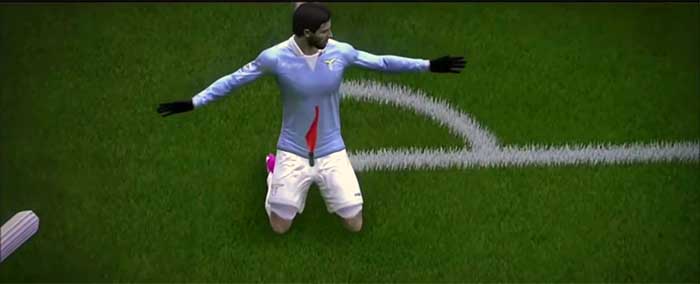
Inflation in FIFA 15 became so rampant that suspicions arose about possible bugs in the game allowing for coin generation. EA refused to address these concerns, likely to avoid shifting blame away from coin sellers. However, there are strong indications that the developers themselves may be at fault. The introduction of a maximum daily rewardable games limit per account hints at deeper issues. Bots programmed to initiate offline season games and interrupt them with a disconnection intercept the server’s response, altering it to grant coin rewards. This exploitation has persisted for three years, leading to inflated leaderboards and undermining the game’s integrity.
It’s astonishing that a company of EA’s caliber could overlook such glaring issues. Similar cases, like cards exceeding 15 million coins on the FIFA 14 market, highlight EA’s lax approach to addressing fundamental flaws. Third-party applications bypassed price limits, exploiting vulnerabilities in the server’s validation process. EA’s tendency to opt for quick fixes, such as deactivating the EAS FC catalogue bonus reward item, rather than addressing underlying issues, reflects a disregard for the game’s long-term health. Despite two years passing, these problems remain unresolved.
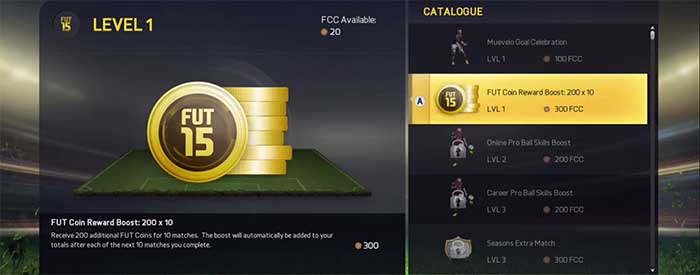
This article isn’t intended as an anti-EA propaganda piece; rather, it’s focused on finding solutions to improve the gaming experience. Despite the challenges faced by FIFA 15 Ultimate Team, arguably worse than ever, the pressing question now is whether FIFA 16 will address these issues. Will it be worth purchasing? Can EA rectify this year’s problems and restore trading functionality?
Addressing the game’s myriad bugs and weaknesses won’t be easy, especially considering EA’s apparent lack of focus on eliminating them. While the Price Ranges feature may persist, its implementation has been fraught with missteps. Incorrect price definitions, attempts to standardize prices across platforms, and inadequate response to market dynamics have exacerbated the situation. Attempts to force desired prices onto players have led to player card extinction and market stagnation.
While access to non-inform (NIF) cards has improved, the market remains stagnant. With the season well underway, interest in basic cards has waned, hindering squad improvement. Players are reluctant to sell valuable cards due to anticipated depreciation and uncertainty in finding suitable replacements. Furthermore, ongoing price range adjustments deter investment in high-value cards, resulting in a market flooded with unsold cards and diminished trading activity. While it’s still possible to assemble decent squads, the Ultimate Team market’s decline has significantly altered the gaming experience.
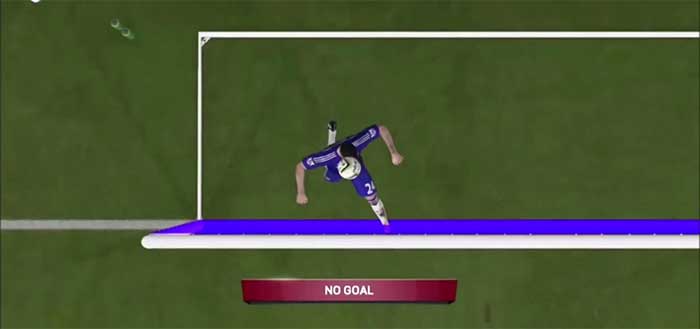
While Price Ranges may continue into FIFA 16, some inherent problems are likely to persist. Even with broader price ranges, trading may lose its appeal. Removing minimum prices could alleviate some issues, but EA seems reluctant due to concerns about combating coin sellers, despite this not being a definitive solution. Previous attempts to define limits have not resolved all problems, as seen in past iterations of the game.
EA’s chosen approach may have its merits, albeit at the expense of trading enthusiasts. However, navigating the complexities of such a vast economic system is inherently challenging. Adjusting match coin rewards, tournament prizes, and season rewards could offer a fairer playing field, mitigating the disparity between players who engage in gameplay versus trading. Yet, these adjustments must be made cautiously to avoid exacerbating market inflation.
Options like increasing the availability of top players or reducing the price of FIFA Points may not be viable, as they could impact EA’s revenue negatively. Finding the right balance is crucial, and players can only hope that EA takes appropriate steps for FIFA 16.
“But do EA actually have reasons to be worried? How bad are things?” you ask. Very bad, I’ll answer. For the first time in the history of this game mode, an increasing number of players isn’t expected for the next year. Quit rates will be the highest ever, even considering that many players that are currently dissatisfied will end up buying the game. While there are people who can live without a transfer market, there are also lots of people who both won’t give up the fun buying and selling offers and won’t accept the developer’s kind of disrespect that changes the rules during the game and doesn’t focus on problems that occur every year just because they don’t directly affect the FIFA Points market. The #futrip hashtag didn’t go viral because of nothing. It’s not just the coin sellers showing dissatisfaction, as some people would say. It was real people, honest people, like me and you.
Although there isn’t enough solid evidence, the number of people that apparently have left Ultimate Team is frightening. According to Chu Morah, EA Sports FIFA Community Specialist, there were more people playing UT in the last week of March than during the TOTY, which I can only face as an April Fools joke since that was exactly the day of said revelation. All the numbers I have point the opposite direction. You just need to look at the number of live auctions on the transfer market to see that’d hardly be the truth. I’ve got the privilege to look at some more data that can give up a clearer idea of what’s going on. Apparently, a decrease of around 55% was registered in the couple of weeks that followed the Price Ranges implementation, and then one of 40% in the weeks preceding the TOTS release. Less players represent fewer copies of the game being sold and mainly less income from FIFA Points, which is more than enough to make EA’s alarm go off for their golden goose is at risk. The implementation of these changes mid-season was an authentic shot in their own foot. It would’ve been better to leave the game the way it was and only apply these changes on FIFA 16. Now the company’s image faces an ugly fate.
Now that I’ve spoken my opinion out, supported by several facts, I can finally shut it and leave it to you in the comments section. Whatever happens, FIFA U Team will be around to help those in need.
I commend you all who read this entirely. I promise I’ll try and be as brief as possible next time.

Firstly, great article Rodrigo.
Now, let me share my experience with FUT. I am playing FIFA since 98 and till 2013 I was still preferring career mode. But after number of seasons in different leagues winning everything possible I thought that there is a time to try something different. So, FUT on 2013 well after 2014 release it was.
I was never a fan of spending on addons only if there was a good deal for what I am getting. Even though I would be playing FUT where there are promo packs and happy hours the FP is not a great deal. What I get for my money? A chance to pack a good player, well, pretty slim but possible. If you like gambling, fair enough 🙂 So, I was playing the game to generate coins and guess what? I was constantly short on contracts so I had to buy some FP to survive and even be able to play.
Then I bought FIFA15 just after TOTY and first thing what I did was invest very little money to buy coins to allow me to open loads of packs to be able to play and enjoy the game for a year.
Conclusion: Trading on TM (is)was the only option if you don’t want to buy FP or coins! And there you have it. It was said number of times above, the changes didn’t make it fairer to inexperienced players to afford good players/sta. The changes were done to force you to buy FP. I would like to see EA numbers how the revenue has changed after this ‘fair’ move 😉
Thank you for sharing your thoughts.
The gameplay and theory behind Fut is what makes it so good, but the ingame glitches, server issues coin glitches and general screw ups truly take away from this experience. I just wish EA would become a company which is for supporting the gamer rather than lining their own pockets. It is so obvious that everything they do (like releasing special cards and expensive packs) is to earn more money. The only reason price ranges and all the other changes were implemented is damage control to avoid losing gamers, which backfired badly. I think FUT needs to be rebult around the same foundations from the ground up to stop the coin sellers, reduce the need for FIFA points and ultimately improve the game for the most important person involved, the one who plays it.
I only started playing FUT on FIFA15. By the time I started, it was a month to TOTY so prices were absurdly high. With a few calculations I realized I would NEVER have a Messi or a Ronaldo. My team would be average and players like Ribery, Bale, Suarez would never be part of my team. Unless I packed them.
At the time I started playing I wasn’t aware of coin selling. I am also kind of discouraged about spending let’s say $300 on add-ons for a game I paid $60. Anyway, my future (team) was not promising, but I had some fun – I actually remember when I spent 40k to buy Kompany and how happy I was to have him.
Now comes the crucial point of the discussion: FIFA POINTS.
Differently than me, there are people that are willing to spend money on games’ add-ons. And these are the golden eggs EA wants. They don’t care about people like me. And now comes the reality that most coin buyers do not want to face: EA doesn’t care about them neither!!! Because they do not generate revenues to the company (except for the $60 they paid on the game). So if they leave the community, EA does not care. Sorry, but it is what it is. (For the record, I am not against or pro coin selling, I think people are free to make choices).
One may argue that these players helped the liquidity of the market, increased the community, etc. I take that. But IMO, this is not the point. Again, no direct impact on EA’s pocket.
On coins: Before, if you bought a 100k pack, you could have an actual sell price of your pack close to 80k because prices were inflated. Now the relationship changed. It is almost pointless to buy a 100k pack with coins because, as an investment, you will most likely get 24 players worth around 2k each. If you are lucky, you get a Lewandowski worth 23k. Conclusion: Before, buying packs with coins was a bad deal, now it is even worse. But there is a catch: before, because of coin farming, coins were cheap.
On FPs: Because of the catch above mentioned, FPs were pointless unless you believed that coin buying was “unethical” or you didn’t want to take the chance of being banned.
Nowadays, prices of coins have increased and FPs became more attractive compared to the past (not saying it is a good deal!). Another reason is that for people who would spend money on FPs, they would get 24 players worth 4k each and now they get the same players for 2k each. But, all other players have also decreased in value, so purchase parity stayed the same. So for them, everything is fine and no matter what, Ronaldo and Messi are still unattainable anyway.
In sum, EA did what was best for them. Pissed coin buyers off to the point they will not play anymore, made it harder for coin farmers, turned FPs more attractive to players who are willing to buy FPs and made the dream team more achievable to these same players.
I agree that changing the rules in the middle of the game is not cool. But not being able to acquire Ronaldo (without spending cash) is not cool either.
What I think EA should rethink is the coin/FP relationship. Maybe itis not ideal today because there is a history of inflated prices and on FIFA16 it won’t happen. But spending 7.5k (or 150 FPs) on a regular gold pack with usually one rare player worth around 1k, doesn’t make sense.
All in all, life is a bitch, shit happens and for the better sake, learn to deal with frustration. Your choices are to play or not to play. Put all in a bag and decide. Simple as that.
One of the best comments I read here in FIFA U Team website. Good one!
😉 Thanks. Just my 10 cents on the discussion.
Out of curiosity, what happens after TOTS? Will you write about it?
TOTS will take a long time to be released. So, after TOTS will probably will get FIFA 16. And we will definitely write about it. 🙂
I’d rather have inflation and a transfer market on the web than the way it is now. I only have time to play 5 or so matches a week so I can’t generate enough coins through play. I was able to check the web app at times and make enough coins to afford second-tier stars that way. There’s also the joy of finding surprising deals and fun with listings that way that is just gone now. Most of us aren’t getting Messi even with price ranges and less inflation but the market was much more fun when there were over a million auctions constantly.
I think there is evidence that EA is selling less Fifa points. This is the price of gold contacts which increases dramatically from 250-300 to 800-900. Gold contracts are mainly generated by buying packs. Less packs sold means higher prices. I am talking about PC.
What do you think about it?
It might be that EA is already working not to generate additional revenue, but to reach the budgeted revenue.
Good point. Seems a good view.
How ironic that in trying to prize away money from the coin sellers, they are only draining their own income that they cling to so dearly. EA really need to invest in a PR team, I don’t think they know what to do with people at all.
Once again Rodrigo a good article and an interesting read. I think that their PlayStation sales will be damaged severely, the market on there is far worse than on Xbox – at least on Xbox you can have some chance of buying players, just higher rated players alone are disappearing on PS. It’s all a bit of a mess and I really hope that something is learnt from this debacle by EA.
Thank you very much.
I guess will find out (Fifa 16 sales) how much damage EA has done to it self.